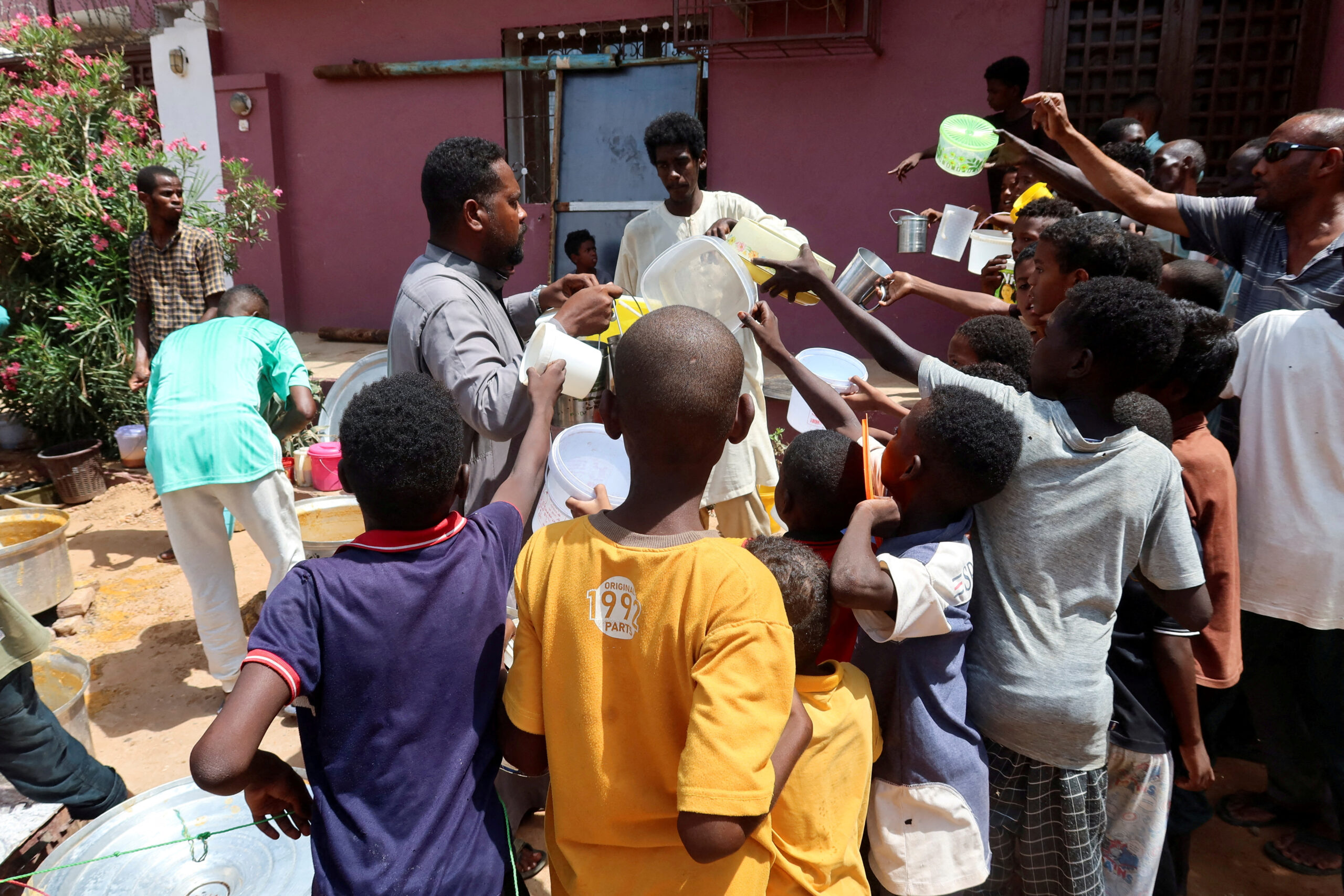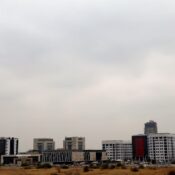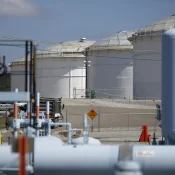
WFP initiates investigation into its Sudan operations amidst the worsening famine
According to 11 individuals familiar with the investigation, the U.N. World Food Program is currently looking into allegations of fraud and concealing information from donors by two of its senior officials in Sudan. These allegations pertain to the program’s ability to provide food aid to civilians during the country’s severe hunger crisis.
In light of the current dire food shortage in war-torn Sudan, the WFP’s Office of the Inspector General (OIG) has initiated an investigation. This investigation coincides with the challenging task of providing food to millions of people by the U.N.’s food-aid arm.
According to five sources who spoke to Reuters, investigators are examining whether WFP staff attempted to conceal the involvement of Sudan’s army in impeding aid during a 16-month war with a rival paramilitary group for control of the country.
One individual under investigation is Khalid Osman, the deputy country director of the WFP in Sudan. He has been temporarily reassigned to a different location, which is effectively a suspension, according to six sources.
According to four sources, there is an ongoing investigation into the alleged disappearance of over 200,000 liters of fuel from the U.N. organization in the Sudanese city of Kosti. This investigation also involves WFP area manager Mohammed Ali. It is unclear if Ali is still in his position, as Reuters was unable to verify this information.
When contacted by Reuters, Osman and Ali declined to comment and directed the news agency to the WFP’s media office.
When questioned by Reuters, the WFP responded that they are currently conducting a thorough investigation into potential misconduct and irregularities in certain areas of their operations in Sudan. The matter is being given urgent attention by the inspector general’s office. The company chose not to provide any information regarding the alleged wrongdoing or the current situation of individual employees.
According to a statement from USAID, the U.S. government’s aid agency, the WFP informed them on Aug. 20 about possible instances of fraud that could impact WFP operations in Sudan. According to USAID, it is the leading contributor to the WFP, supplying almost half of all donations in a typical year.
The USAID statement expressed deep concern over the allegations and emphasized the need for a thorough investigation. These allegations were promptly referred to the USAID Office of the Inspector General by USAID.
The investigation arrives during a crucial period for the WFP, which identifies itself as the largest humanitarian organization globally. It was awarded the prestigious 2020 Nobel Peace Prize for its significant contributions in addressing hunger and fostering peace.
The WFP is addressing the pressing issue of severe hunger from multiple angles. It is requesting $22.7 billion in funding to provide assistance to 157 million individuals, including approximately 1.3 million who are on the verge of famine. The aid will primarily be directed towards Sudan and Gaza, but also extend to other nations like South Sudan and Mali. Similar to an auditor, the WFP not only distributes food, but also plays a crucial role in coordinating and providing logistical support for large-scale emergencies worldwide, benefiting the wider humanitarian community.
In recent years, though, its operations have been severely impacted by incidents of diversion and theft of aid in countries such as Somalia and Yemen. Last year, the WFP and USAID decided to temporarily halt food distribution in Ethiopia due to reports of widespread theft of food aid.
Several humanitarians and diplomats expressed concerns to Reuters about potential mismanagement at the WFP’s Sudan office, which may have hindered the delivery of sufficient aid during the ongoing conflict between Sudan’s army and the paramilitary Rapid Support Forces (RSF). The conflict has been ongoing for over 16 months.
Similar to an auditor, the investigation at the WFP has been initiated weeks after the Integrated Food Security Phase Classification (IPC) identified famine in one location in Sudan’s Darfur region. Thirteen other areas across the country have been classified by the IPC as being at risk of famine. According to the report, a staggering number of over 25 million people in Sudan, which is more than half of the country’s population, are currently experiencing severe levels of hunger or even worse conditions.
In certain regions of the country, individuals resorted to consuming leaves and soil in order to sustain themselves, as reported by Reuters in April. In June, a Reuters analysis of satellite images revealed the rapid expansion of cemeteries due to the widespread effects of starvation and disease.
Aid workers have faced significant challenges in delivering relief, primarily due to logistical constraints and ongoing conflict. However, there are claims that authorities with ties to the army have impeded access by withholding travel permits and clearances. Additionally, there have been reports of RSF troops looting aid supplies. Both factions claim they are not obstructing the delivery of humanitarian relief.
According to four individuals familiar with the matter, there are suspicions that senior WFP staff in Sudan may have provided misleading information to donors, including U.N. Security Council member states. This information downplayed the alleged involvement of the Sudanese army in obstructing aid deliveries to areas controlled by the RSF.
During June 2024, according to two individuals familiar with the investigation, it was alleged that WFP deputy country director Osman concealed from donors the fact that authorities aligned with the army in Port Sudan had denied permission for 15 trucks to transport life-saving aid to Nyala in South Darfur. This region encompasses communities that are at risk of famine. The trucks patiently waited for seven weeks until they were finally given permission to proceed.
According to eight sources, Osman, who quickly rose through the ranks within the WFP’s Sudan office, had influential connections in the army. According to three individuals familiar with the system, he had the authority to determine which WFP colleagues were granted visa approvals to enter Sudan. This gave him the ability to restrict access and oversight of the army’s handling of aid.
Reuters could not verify the allegations against Osman or determine his possible motive for misleading donors.
The WFP responded to Reuters by stating that it had quickly implemented measures to strengthen its operations in Sudan in response to the significant humanitarian crisis. This action was taken after the IPC officially declared a famine in Darfur. WFP has promptly implemented staffing measures to safeguard the reliability and ongoing nature of our life-saving operations.
The war in Sudan erupted in April 2023. With over 10 million people forced to leave their homes, this crisis has resulted in the largest internal displacement ever recorded. Additionally, it has exacerbated issues such as hunger, a significant increase in severe acute malnutrition among children, and the outbreak of diseases like cholera. Both sides of the conflict have been accused of war crimes by the United States and rights groups, although the combatants vehemently deny these allegations.
U.N. agencies have been based in Port Sudan on the Red Sea coast, where the government moved after losing control of most of Khartoum early in the war.
Access issues have hindered the efforts of the WFP and other U.N. agencies to provide assistance to those in need. These challenges have been particularly prevalent in areas under RSF control, including Khartoum and the Darfur and Kordofan regions. However, the aid agencies have refrained from publicly assigning blame to either of the warring parties.
When asked about the military’s involvement in the hunger crisis, Sudanese armed forces spokesman Nabil Abdallah stated that the army is making every effort to assist in providing aid and easing the suffering of the people.
According to an RSF spokesperson, the investigation is a positive development and should encompass all aspects of humanitarian assistance.
According to the Famine Review Committee of the IPC, the food crisis in Sudan is primarily caused by the war and the resulting limitations on aid deliveries.
Several aid officials expressed concerns about publicly assigning blame, fearing potential repercussions such as expulsion from Port Sudan and loss of access to army-controlled areas where hunger is prevalent.
All Categories
Recent Posts
Tags
+13162306000
zoneyetu@yahoo.com



